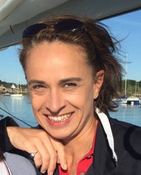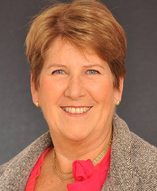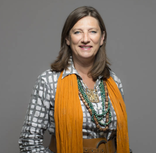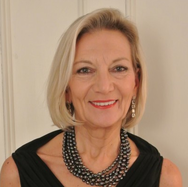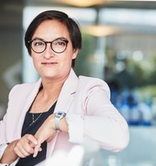THE PROJECT.
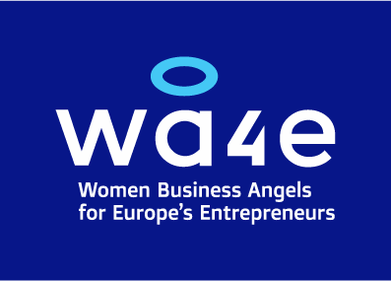
With this European Union funded project running 2017-2018, Business Angels Europe, WEP and its partners set out to increase the number of Women Business Angels by 10% and to generate 2.5 million € fresh investment in start-ups across Europe. The WA4E project deploys awareness raising, training and mentoring actions (event based and on-line) to reach out to over 3000 women, identify, engage, coach and accompany women business angels, both new and already active.
The WA4E programme promotes and professionalises female angel investment in 6 countries (Belgium, France, Italy, Portugal, Spain and the UK). The project worked on the demand side with 480+ women entrepreneurs to access early finance, and improve their pitch.
WA4E will provide 200+ quality deal opportunities to women angels and facilitate 30 deals.
Find out more here.
The WA4E programme promotes and professionalises female angel investment in 6 countries (Belgium, France, Italy, Portugal, Spain and the UK). The project worked on the demand side with 480+ women entrepreneurs to access early finance, and improve their pitch.
WA4E will provide 200+ quality deal opportunities to women angels and facilitate 30 deals.
Find out more here.
Barriers and Opportunities for Women Angel Investing across Europe
European Parliament
5 June 2018
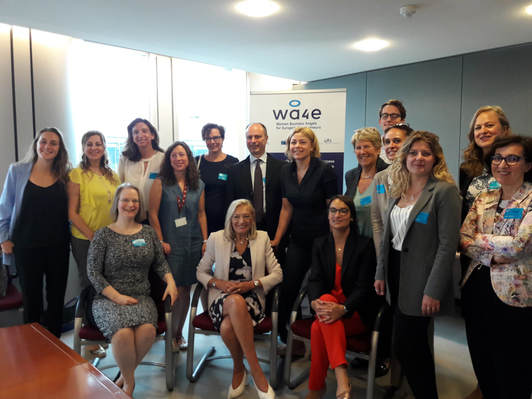
The WA4E project held a breakfast briefing on the 'Women Business Angels for Europe's Entrepreneurs' in the European Parliament on the 5th June. MEP Miapetra Kumpula-Natri (S&D, FI) opened the meeting discussing startups and women, there is a disruption in innovation happening in digital. She highlighted the need for education of women. Role models are there to encourage women to be more visible. Women business angels do need to have more visibility, and that is where the European Parliament can help. MEP Henna Virkkunen (EPP, FI) seconded Ms Kumpula-Natri’s arguments, adding that there is still a lot of work to do for equality especially in venture capital and for business angels.
Marie-Elisabeth Rusling, CEO of Business Angels Europe and the lead on the WA4E project gave an overview of the aims of the project. She argued there needs to be a European-wide campaign to raise more awareness and there needs to be more harmonization, to achieve a single market for investors. Jenny Tooth, CEO of UKBAA, and the lead partner on the survey, presented the main results of the survey, analyzing the investing behaviours of women investors. She highlighted some of the findings of the survey, such as that financial reward is only the fourth motivation for women business angels. The survey instead shows that women business angels value the unique contact with entrepreneurs and keeping up with new trends and technologies. Claire Munck, CEO of Be Angels concluded the meeting with some tangible results in her Belgian business angels association, where the percentage of women business angels has drastically increased.
Marie-Elisabeth Rusling, CEO of Business Angels Europe and the lead on the WA4E project gave an overview of the aims of the project. She argued there needs to be a European-wide campaign to raise more awareness and there needs to be more harmonization, to achieve a single market for investors. Jenny Tooth, CEO of UKBAA, and the lead partner on the survey, presented the main results of the survey, analyzing the investing behaviours of women investors. She highlighted some of the findings of the survey, such as that financial reward is only the fourth motivation for women business angels. The survey instead shows that women business angels value the unique contact with entrepreneurs and keeping up with new trends and technologies. Claire Munck, CEO of Be Angels concluded the meeting with some tangible results in her Belgian business angels association, where the percentage of women business angels has drastically increased.
THE SURVEY.
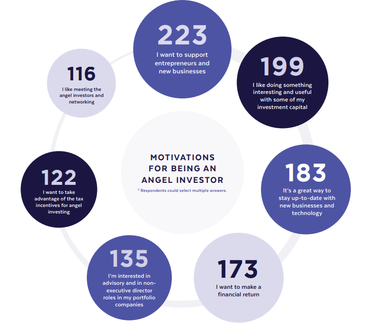
This research has been done in the context of the European-funded programme, Women Business Angels for Europe’s Entrepreneurs WA4E which represents a consortium of partner organisations from six countries of Europe, comprising UK Business Angels Association and Angel Academe in UK; Femmes Business Angels, France; Be Angels Belgium; IESE, Spain; IBAN, Italy and WinWin, Portugal and the project is co-ordinated by Business Angels Europe, the European association for national angel federations and trade bodies. WA4E was launched in January 2017 and runs to December 2018.
The Research was led by UK Business Angels Association, the trade body for Angel and early stage investing in the UK in partnership with Angel Academe, a leading angel network focusing on investing in women in technology. It was supported by the WA4E partner organisations in the other five EU countries. The survey integration on the online platform and analysis of results was carried out by Cass Business School, a highly experienced academic institution with strong market research expertise, especially in SME finance. The research comprised a detailed online questionnaire produced in 6 different versions relevant to language and the regulatory and fiscal environment in each partner country. This was accompanied by a proactive campaign to raise awareness of the research and encourage participation in the survey. The partners reached out to a total of over 6,000 women across the six partner countries. By the end of the collection period, a total of 640 with valid responses were obtained across the 6 countries. This was 10% of the survey target market and thus represents a statistically robust sample of women in the partner countries and included 310 women who were already angel investing and 330 women were not angel investing, so this was a useful split to benchmark the characteristics of these two groups.
Characteristics of the women respondents:
The women respondents were mainly aged between 31 – 50 and the majority of the women respondents (70%) were highly experienced business women with a significant proportion of the women respondents (42%) having had 21 – 30 years of business experience. The Women respondents were highly experienced business women and were active in business across a range of industry sectors. Whilst those who are angel investing have more years business experience than those not yet investing. A significant proportion of women investors and non–investors had founded at least one business and nearly 72% of women who had founded a business have also positively exited at least one business. The women respondents had a strong level of annual income overall, with the majority having modest disposable assets
What were the key drivers for women to start angel investing
Supporting entrepreneurs to grow their business, “putting something back” and supporting their local economy was regarded as the primary motivation for women to become angel investors - and this was more significant than making a financial return. Keeping up to date with business and technological innovations and developments was also a strong motive for many women investors. The opportunity of meeting like-minded people and making new friends and contacts within a network, making new social contacts and exchanging experience with their peers was also seen as important for many women.
Read the survey here.
The Research was led by UK Business Angels Association, the trade body for Angel and early stage investing in the UK in partnership with Angel Academe, a leading angel network focusing on investing in women in technology. It was supported by the WA4E partner organisations in the other five EU countries. The survey integration on the online platform and analysis of results was carried out by Cass Business School, a highly experienced academic institution with strong market research expertise, especially in SME finance. The research comprised a detailed online questionnaire produced in 6 different versions relevant to language and the regulatory and fiscal environment in each partner country. This was accompanied by a proactive campaign to raise awareness of the research and encourage participation in the survey. The partners reached out to a total of over 6,000 women across the six partner countries. By the end of the collection period, a total of 640 with valid responses were obtained across the 6 countries. This was 10% of the survey target market and thus represents a statistically robust sample of women in the partner countries and included 310 women who were already angel investing and 330 women were not angel investing, so this was a useful split to benchmark the characteristics of these two groups.
Characteristics of the women respondents:
The women respondents were mainly aged between 31 – 50 and the majority of the women respondents (70%) were highly experienced business women with a significant proportion of the women respondents (42%) having had 21 – 30 years of business experience. The Women respondents were highly experienced business women and were active in business across a range of industry sectors. Whilst those who are angel investing have more years business experience than those not yet investing. A significant proportion of women investors and non–investors had founded at least one business and nearly 72% of women who had founded a business have also positively exited at least one business. The women respondents had a strong level of annual income overall, with the majority having modest disposable assets
What were the key drivers for women to start angel investing
Supporting entrepreneurs to grow their business, “putting something back” and supporting their local economy was regarded as the primary motivation for women to become angel investors - and this was more significant than making a financial return. Keeping up to date with business and technological innovations and developments was also a strong motive for many women investors. The opportunity of meeting like-minded people and making new friends and contacts within a network, making new social contacts and exchanging experience with their peers was also seen as important for many women.
Read the survey here.
Interested in knowing more about women business angels?
Check out these events and workshops across Europe.
- 30 MAY 2018 - Starting angel investment: keys for potential women angel investors at BizzBarcelona | Barcelona | organised by IESE | Find out more
- 30 MAY 2018- Pitching event | organised by IBAN | Salerno | Find out more
- 1 JUNE 2018 - Debrief Women Business Angel Club | Brussels | organised by Be Angels | Find out more
- 12 JUNE 2018 - Be Angel Academy | Brussels | organised by Be Angels | Find out more
- 12 - 28 JUNE 2018 - International Business Festival, with 8 thematic events organised by UKBAA | Liverpool | Find out more

